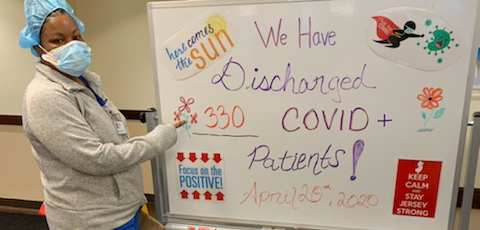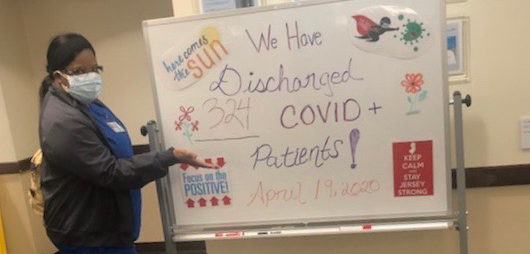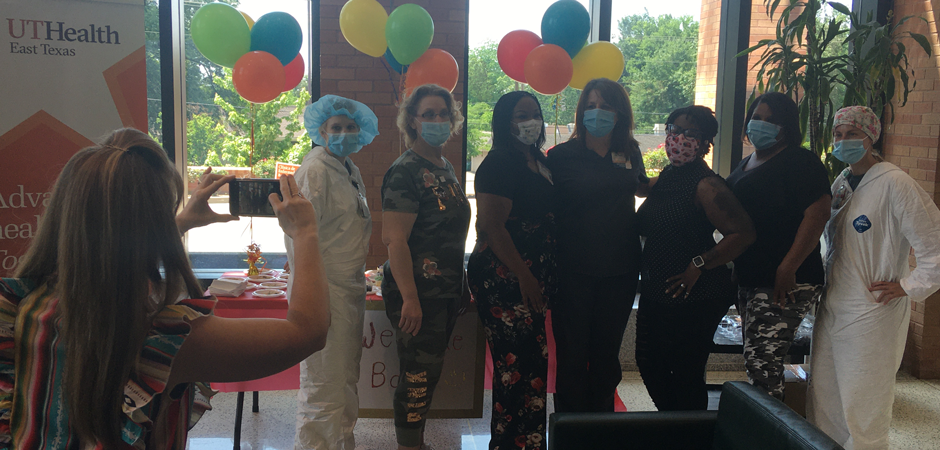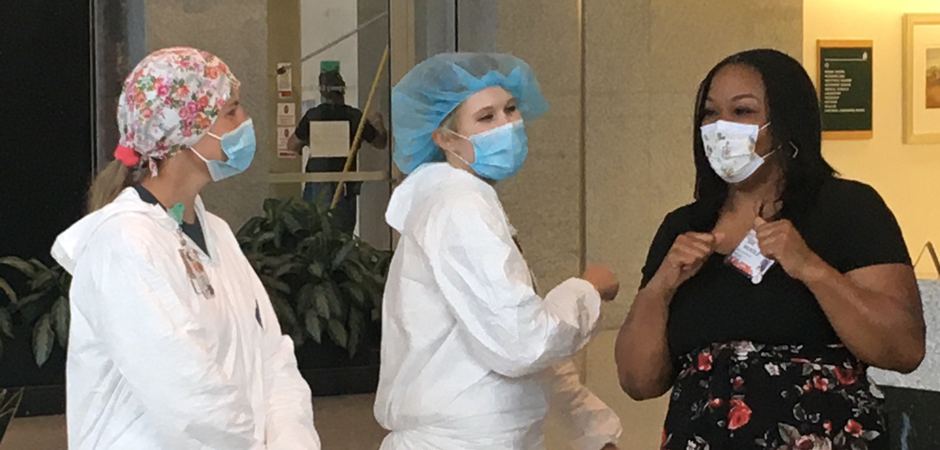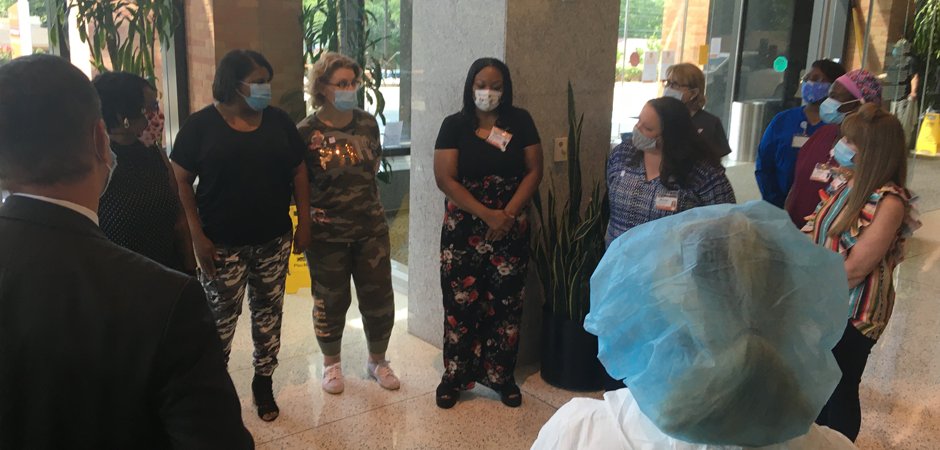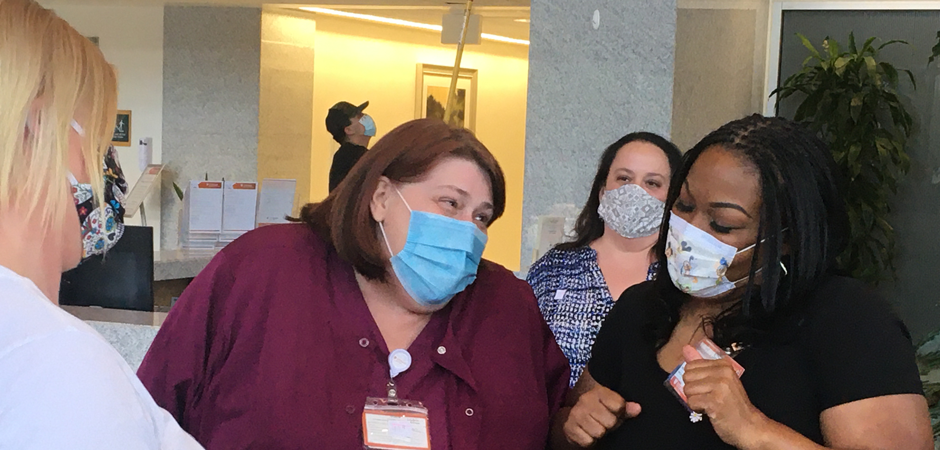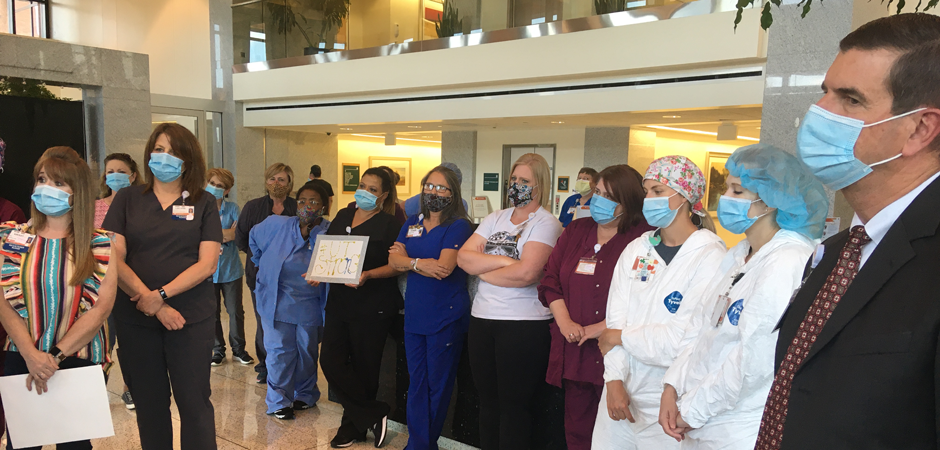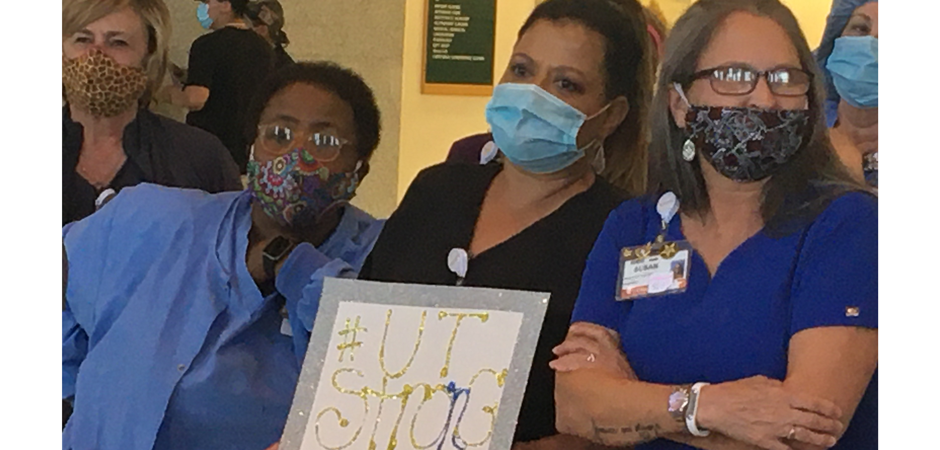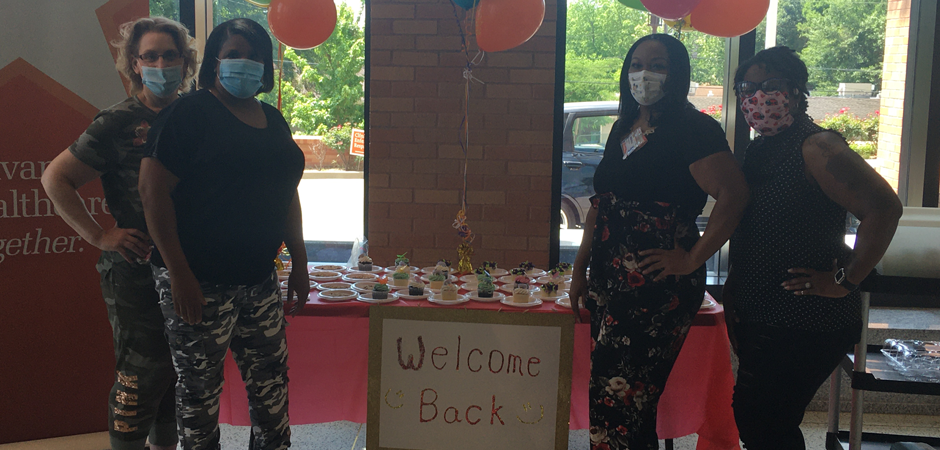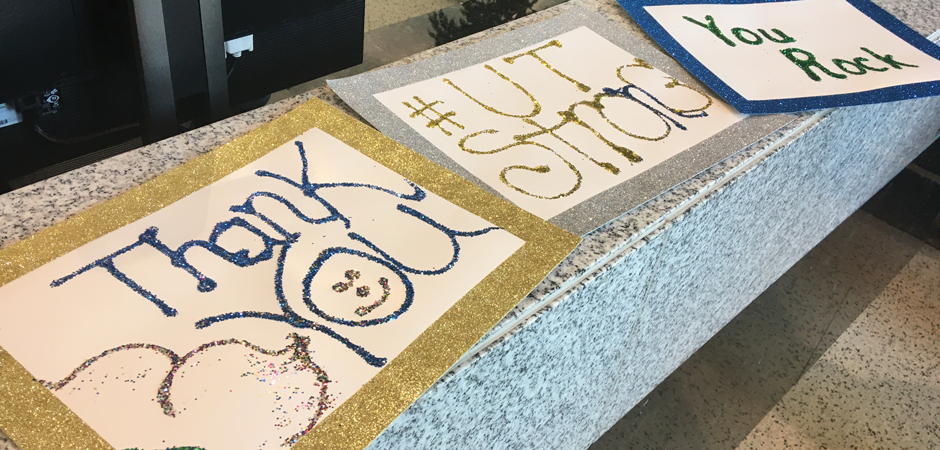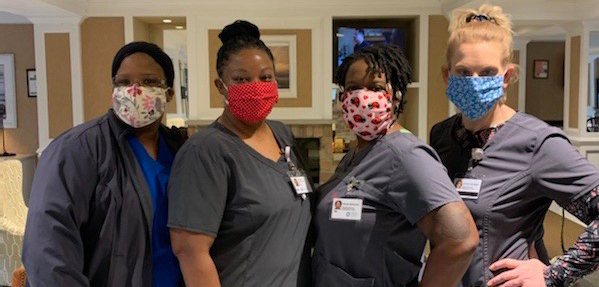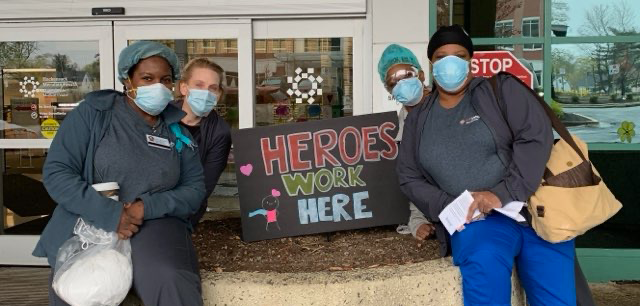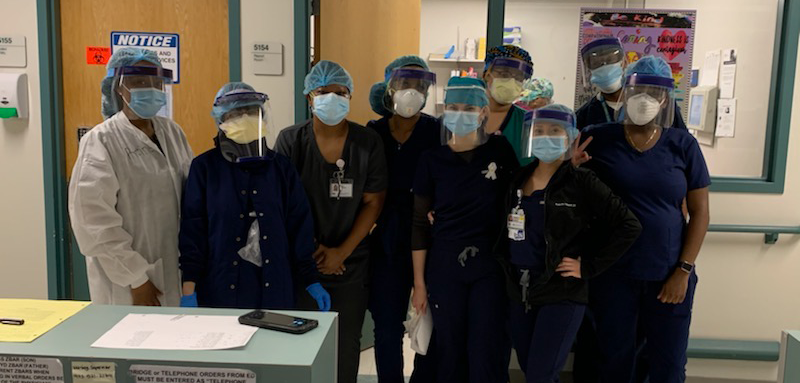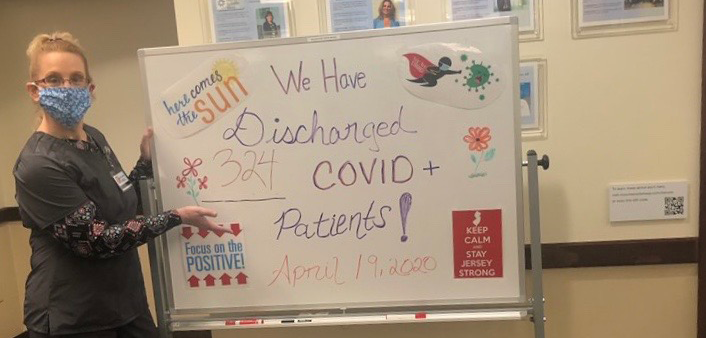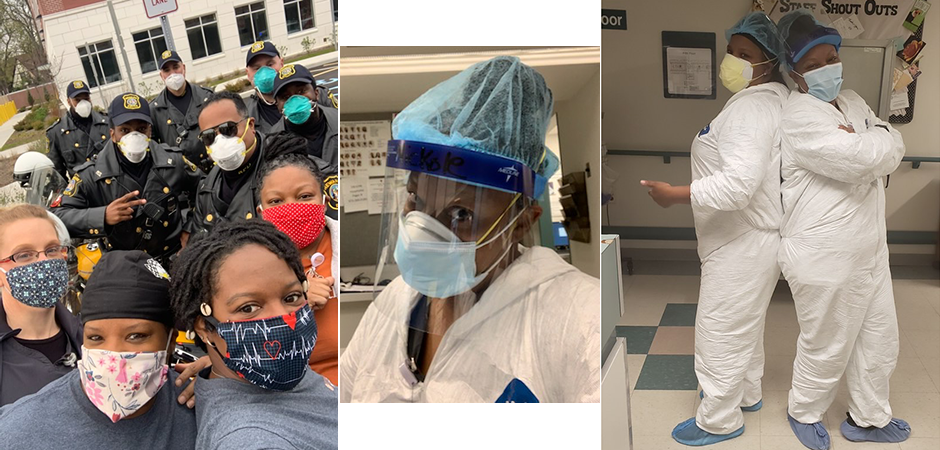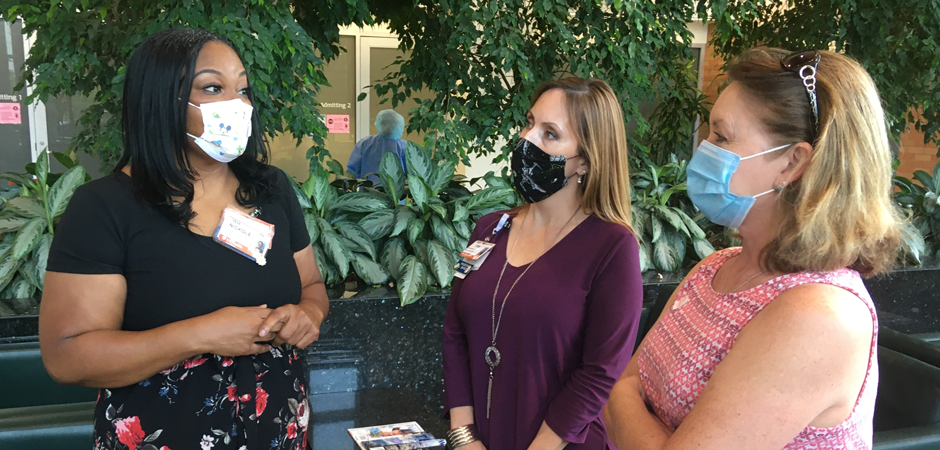
Four nurses from UT Health Henderson returned to work this week after spending two weeks helping at a New Jersey hospital during the height of the COVID-19 outbreak there.
All four tested negative for COVID-19 upon returning and were quarantined for a week as an added precaution. On Wednesday, they walked back into the hospital they left almost a month ago to help in one of the hardest hit hotspots in the country.
After hearing about the need for nurses to help at Hackensack Meridian Health, a sister hospital to UT Health Henderson, Nickole Dudley, an RN on UT Health Henderson's medical/surgical floor, knew she had to go, a sentiment shared by three other UT Health Henderson nurses who arrived in New Jersey shortly after she did.
"A lot of disasters that occur, you feel like you can't do anything about. But with this one I said, 'We're nurses and we can help,'" Dudley said.
Krissy Chastain, RN, chief nursing officer for UT Health Henderson, said she is extremely proud of the nurses for volunteering to help in the time of need.
"It speaks to their dedication to the field of nursing and the oath they took when they got into the profession," Chastain said. "They were willing to sacrifice themselves and their families to help people in need."
Shanté McDonald, an RN in the UT Health Henderson emergency room, said even though her children are grown, they didn't want her leaving.
"They said, 'Mom, you don't have to do this,' and I explained that it's something within you and I felt the need — the calling — to go," McDonald said. "Of course my parents were not supportive. They called a whole family meeting and we had a group text going where they were saying I didn't need to go. I said, 'Y'all, it's already set in stone. I'm going!'"
Brandy Norman, an RN in the ER, said her kids, ages 15 and 17, were a little more relaxed about her departure. "Mine just said, 'Bye, but don't come back with the COVID.'"
When they arrived, the hospital was treating more than 100 COVID-positive patients. Wings that normally are used for obstetrics, orthopedics, surgery and other purposes had been converted into COVID units.
"To see over 100 people with the same virus, it's breathtaking," Dudley said. "We saw people coming in in their 30s and 40s with no health issues at all other than fighting this virus.
"There was such a different array of patients. We saw older patients that were doing well and younger patients that were dying. It's just difficult to understand the magnitude," she said. "Between the four of us, we have 60 years of nursing, but it challenged us mentally and physically because you were doing everything you could to keep your patients alive all night long."
While they saw some patients who didn't make it, they watched as others slowly recovered.
"The good thing was to see patients discharged that you had taken care of that got better," Norman said. By the time they left, the hospital had discharged almost 400 COVID patients.
The nurses said they will never forget the time they spent in New Jersey and plan to keep in touch with the nursing staff there.
LaSwanda Williams, an RN who works in UT Health Henderson's ER, said she was touched by how the nurses there accepted them with open arms.
"The best part was the friends we made there, they were all so welcoming," Williams said. "Once they got to know us they were like, 'Oh, you're the group from Texas, we can't thank you enough! I just felt like celebrity."
In fact, the nurses got celebrity treatment on their trip back to Texas. While on a layover at the Washington, D.C., airport, a man approached McDonald and asked if she was a healthcare worker. It turns out he was the plane's pilot and upgraded them to first class to thank them for their service.
Now that they're back home, the nurses have advice for those who may not be taking the virus seriously.
"Stay at home. This is real," Dudley said.
"If you have to go out wear your mask," McDonald added. "Social distancing is a must because not only are you putting yourself and your family's lives in danger, you're putting us as healthcare workers in danger. You're putting our lives and the lives of our patients that we're taking care of at risk."
